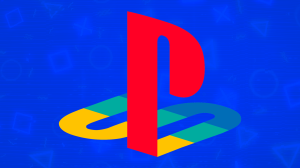Update: 11 days after its release, in a wildly unprecedented move, PlayStation has shut down Concord and removed it from sale. It has also issued full refunds to everyone who purchase the game digitally for PS5 and PC. Those who picked up physical copies unfortunately are out of luck.
Videos by ComicBook.com
Original: After eight long years of development, last week Firewalk Studios and PlayStation released first-person hero shooter, Concord. At the moment of writing this, the game is sitting at a 67 on Metacritic and virtually no one is playing it. It remains unclear what the player numbers are on PS5, but the game was instantly dead on Steam. To date, its highest peak player count was 697. To put that number into context, one of the worst games of the generation, The Lord of the Rings: Gollum, posted a higher peak than this with its 758 peak concurrent players. 697 peak concurrent players for a big budget game from a PlayStation-owned studio is such a low number most of social media assumed it was a glitch in reporting at first. It’s not though. It’s just going that poorly for Concord.
All of this begs the question: how did PlayStation greenlight this game through various milestones all the way until release? This is a game that was made by a studio of approximately 150 developers located in Washington state. That isn’t cheap overhead. Couple this with AAA production value and what you get is not just a catastrophic flop, but a very expensive catastrophic flop. Like many publishers though, PlayStation is well known for killing projects in the middle of development, so how did this slip past the goalie? In what world does Concord release, but PlayStation cancels The Last of Us multiplayer, a game that it had already announced publicly, a game that was no doubt more expensive to make, and a game that the market actually was anticipating? It doesn’t really make much sense, and makes you wonder what is going on at PlayStation.
Who Dropped the Ball With Concord?
The moment Concord was revealed, the Internet knew the PS5 and PC game was going to flop. The dislike bar shows this, all the comments on trailer say as much, and its just obvious looking at the game. It is clear hard work went into Concord, but the ideas this work was built on are flawed. As a hero shooter, the game is years late to a trend the market has been tired of for years. As an online competitive multiplayer game, built with live service in mind, it is competing against some of the biggest and best games the industry has ever produced. Literal juggernauts of the industry even established IP is finding difficult to dislodge. And then there is the writing. Thanks to Marvel and the endless amounts of entertainment it has inspired, banter-fueled goofy writing is incredibly risky when trying to make a first impression. It’s a writing style that has been exhausted, and in the reveal trailer and promotional material for the game, it quadruples down on this style. And it doesn’t even do it well. Making matters worse, the character design is rudimentary and uninspired. A hero shooter, at the bare minimum, has to have cool heroes. Concord’s roster looks like the student project version of Overwatch. The characters range from trite to cringe. Surely all of this raised a red flag.
On one hand, it seems like everyone at PlayStation missed blatant red flags, yet the game’s marketing actually suggests it was aware it had a dud on its hands. Only two months separated the reveal and the release of Concord. Two months doesn’t scream confidence in a product. It screams doubt. If PlayStation was confident in the product, wouldn’t it have had a longer marketing run complete with more opportunity to show the game off? Marketers across the industry have been shrinking the time between reveal and release, but nothing like this. A two month window between reveal and release suggests PlayStation wanted this failed experiment to be over with.
Concord vs The Last of Us Online
Concord was in development for eight years. It wasn’t announced until 2023 though, a year before its eventual reveal. This means that PlayStation had ample opportunity to can the project before the public even knew about it. Meanwhile, The Last of Us Online was already announced, and had years of anticipation behind it. In addition to this, it no doubt had a couple hundred million in investment already. In fact, it probably cost more than Concord, despite never making it as far in development. It was also attached to one of PlayStation’s biggest and most important IPs, and could have provided some synergy with the HBO show. It was probably a much higher quality game as well, unlikely to ever flop. Yet deep into development it was canned by PlayStation.
At the time, it was reported PlayStation-owned Bungie aided in this decision as some type of internal expert on multiplayer and live service games. There is a whole list of separate problems with this, but does this mean Concord also got the greenlight from Bungie, in addition to PlayStation? If so, that is even more perplexing.
For what it is worth, Concord and PlayStation are not the only victims of this growing disconnect between consumers, developers, and executives. It doesn’t take an expert to see Concord, hear its pitch, and send the team back to the drawing board . And there are many other examples of this. With Concord and The Last of Us Online, it’s increasingly obvious that things are a little all over the place at PlayStation as they try and realize this live service initiative they’ve undertaken.








